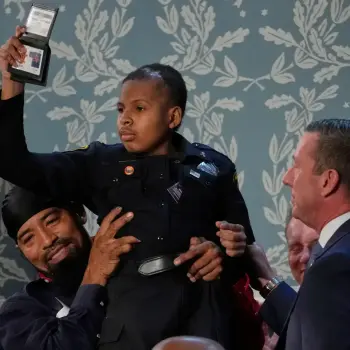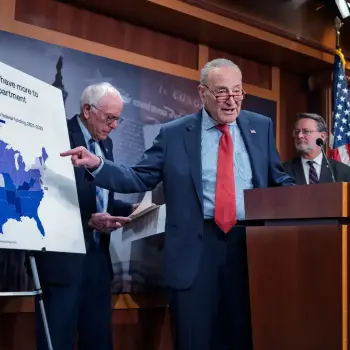The Book of Clarence, a new film from writer/director Jeymes Samuel, takes place in Jerusalem across the weeks leading up to Christ’s crucifixion.
However, it’s not really a story about Jesus.
As Samuel described, “If they tell you a Bible story, you wouldn’t get the story of the guy around the corner. Or the person who sold Jesus his sandals.” And that’s where the movie’s main character—Clarence (LaKeith Stanfield)—steps in.
What is The Book of Clarence about?
You see, Clarence is the fictionalized twin brother of the apostle Thomas, a detail based in Scripture—Thomas was called “the Twin” three times in John’s gospel—but the film takes a great deal of license from there.
Consequently, Clarence is well acquainted with the work of Jesus.
Yet Clarence is also, as Alissa Wilkinson described, “an atheist stoner who sells first-century weed.” As such, when he looks at Christ’s ministry, he sees a false messiah getting paid by a duped populace and thinks he can do the same. After all, in his view Jesus is a con man as well.
Clarence’s ruse works, for a time.
However, he eventually learns the hard way that the Romans don’t take kindly to would-be messiahs and his story turns from there.
Ultimately, The Book of Clarence is a solid film that tells an interesting story while pulling from the biblical account without feeling beholden to it. There are certainly times when those creative liberties stand out more than others. But, when it comes to his portrayal of the true messiah, Samuel does not cross the line into blasphemy, staying pretty faithful to the Jesus of Scripture.
If you can get past those differences and accept the film for the story it’s trying to tell, Clarence has a lot to offer.
Multiple messiahs?
Take one of the film’s central premises, for example.
While Samuel certainly took liberties with some aspects of the gospel story, the proliferation of false messiahs was not one of them.
Jesus was not the only person who claimed to be God’s anointed one in the first century. He was just the only one for whom that claim was true.
The Jews in ancient Rome were desperate for someone to save them and restore the nation of Israel to prominence. And like those who trusted the false prophets in the time leading up to the exile, when those false messiahs filled the heads and hearts of first-century Jews with promises that satisfied their most sincere longings, they were prone to believe the lies.
That this was the case is demonstrated best by how quickly they turned on Jesus once it became clear that he would not be that kind of messiah. And even after he spent more than a month with his disciples following his death and resurrection, they still struggled to see the truth, asking if he would now restore the kingdom of Israel (Acts 1:6).
Who is your messiah?
The very human impulse to create a God in our own image rather than to serve the God who made us in his has been around since the Garden of Eden, and it would be naïve to think it’s going to go away anytime soon. We are just as likely to turn on our heavenly Father today when it doesn’t seem like he meets our expectations as messiah-seekers were two thousand years ago.
I don’t know if that’s the message Jeymes Samuel intended to convey, but it’s a truth God reminded me of through his film. And it’s a message I needed to hear.
- So who or what are the false messiahs in your life today?
- Is there a person or cause that you’ve turned to as a greater source of hope and security than the Lord?
Few things will hinder your relationship with God as quickly as attempting to place someone else on his throne. So take some time right now to pray and ask the Lord to reveal the false messiahs limiting your walk with him.
They may not look like a con man seeking to get rich or powerful off of false faith—though those certainly still exist. But chances are good that something or someone is vying for Christ’s role in your life, and it’s ultimately up to you to decide whether or not they will have it.
Who will be your messiah today?












